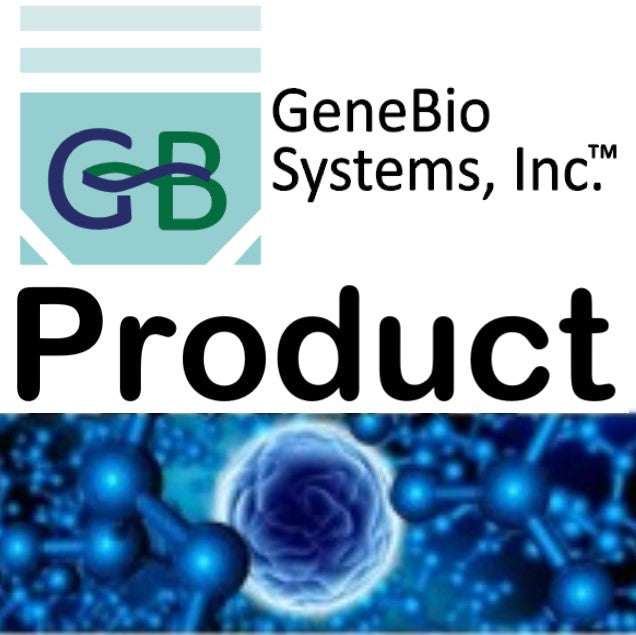Gene Bio Systems
Recombinant Mouse EGF-containing fibulin-like extracellular matrix protein 1(Efemp1)
Recombinant Mouse EGF-containing fibulin-like extracellular matrix protein 1(Efemp1)
SKU:CSB-YP007450MO
Couldn't load pickup availability
Size: 200ug. Other sizes are also available. Please Inquire.
In Stock: No
Lead time: 22-32 working days
Research Topic: Signal Transduction
Uniprot ID: Q8BPB5
Gene Names: Efemp1
Organism: Mus musculus (Mouse)
AA Sequence: QYTEETITYTQCTDGYEWDPIRQQCKDIDECDIVPDACKGGMKCVNHYGGYLCLPKTAQIIVNNEHPQQETPAAEASSGATTGTVAARSMATSGVVPGGGFMASATAVAGPEVQTGRNNFVIRRNPADPQRIPSNPSHRIQCAAGYEQSEHNVCQDIDECTSGTHNCRTDQVCINLRGSFTCQCLPGYQKRGEQCVDIDECTVPPYCHQRCVNTPGSFYCQCSPGFQLAANNYTCVDINECDASNQCAQQCYNILGSFICQCNQGYELSSDRLNCEDIDECRTSSYLCQYQCVNEPGKFSCMCPQGYEVVRSRTCQDINECETTNECREDEMCWNYHGGFRCYPRNPCQDHYVLTSENRCVCPVSNTMCRELPQSIVYKYMSIRSDRSVPSDIFQIQATMIYANTINTFRIKSGNENGEFYLRQTSPVSAMLVLVKSLSGPREYIVDLEMLTVSSIGTFRTSSVLRLTIIVGPFSF
Expression Region: 18-493aa
Sequence Info: Full Length
Source: Yeast
Tag Info: N-terminal 6xHis-tagged
MW: 55 kDa
Alternative Name(s): Fibulin-3
Relevance: Binds EGFR, the EGF receptor, inducing EGFR autophosphorylation and the activation of downstream signaling pathways. May play a role in cell adhesion and migration. May function as a negative regulator of chondrocyte differentiation. In the olfactory epithelium, it may regulate glial cell migration, differentiation and the ability of glial cells to support neuronal neurite outgrowth
Reference: "A tissue-specific atlas of mouse protein phosphorylation and expression." Huttlin E.L., Jedrychowski M.P., Elias J.E., Goswami T., Rad R., Beausoleil S.A., Villen J., Haas W., Sowa M.E., Gygi S.P. Cell 143:1174-1189(2010)
Purity: Greater than 90% as determined by SDS-PAGE.
Storage Buffer: Tris-based buffer,50% glycerol
Storage: The shelf life is related to many factors, storage state, buffer ingredients, storage temperature and the stability of the protein itself. Generally, the shelf life of liquid form is 6 months at -20℃/-80℃. The shelf life of lyophilized form is 12 months at -20℃/-80℃.
Notes: Repeated freezing and thawing is not recommended. Store working aliquots at 4℃ for up to one week.


